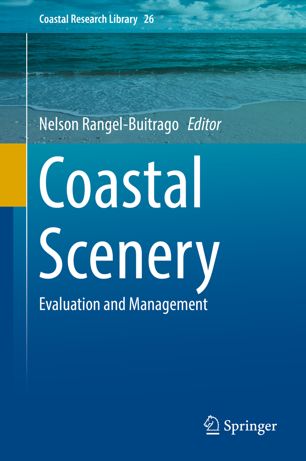

Most ebook files are in PDF format, so you can easily read them using various software such as Foxit Reader or directly on the Google Chrome browser.
Some ebook files are released by publishers in other formats such as .awz, .mobi, .epub, .fb2, etc. You may need to install specific software to read these formats on mobile/PC, such as Calibre.
Please read the tutorial at this link: https://ebookbell.com/faq
We offer FREE conversion to the popular formats you request; however, this may take some time. Therefore, right after payment, please email us, and we will try to provide the service as quickly as possible.
For some exceptional file formats or broken links (if any), please refrain from opening any disputes. Instead, email us first, and we will try to assist within a maximum of 6 hours.
EbookBell Team

4.7
46 reviewsThis book describes an easy to apply methodology to determine the scenic value of a coast. As one of the most critical aspects of beach user choice, the determination of coastal area scenic quality is of primordial importance. This book is, therefore, an extremely useful tool for any coastal lovers, being them users, teachers, researchers, or managers.
In particular, this work is the first book to present a semi-quantitative analysis of coastal scenery based on more than 4,000 interviews about people’s desired coastal imaginary. Twenty-six parameters can be used to identify any coastal scene, which have then been sub-divided into five attribute categories, weighted and subjected to fuzzy logic mathematics to obtain a decision number (D). This number D represents the coastal scenery at that point, and Five D classes are then presented (from I-excellent, to V-poor). Heritage areas, like National Parks should lie in Class I, which infers top scenic quality.
Over a time span of a decade or so, the authors of this book have assessed more than 900 global locations using the technique given in this book. One of the main aims of this method is to point out how scenic areas may be improved by judicious intervention relating to parameters, mainly anthropogenic, chosen for assessment.
The content of this book opens perspectives for analysis of the potential for coastal tourism development in natural areas and for landscape quality improvement in current coastal tourist developed areas.
“In a very comprehensive way, this book reviews the main concepts about coastal scenery and through the vast global work experience of the authors, presents different methodologies, as well as introducing a novel methodology, using parameter weightings and fuzzy logic mathematics.”
Carlos Pereira da Silva, CICS.NOVA, Universidade Nova de Lisboa, Lisbon, Portugal
“Our lives will be greatly enriched by finding beauty, but we can use help in defining the many ways beauty can be manifested. This book can help us by informing us of the ways landscapes can be viewed and described from many viewpoints to place our own understanding in better perspective.”
Karl Nordstrom, Geography Department, Rutgers University, New Jersey, USA
“How do we define and quantify a coast’s scenic value? This is the book. It begins by defining coastal scenery, then reviews the approaches to quantifying it, followed by a new fuzzy logic approach and examples. It finishes with a chapter on how to manage these attractive landscapes, many of which are being overrun and ruined by development. This is a must read for researchers who wish to evaluate and managers who wish to maintain this valuable yet intangible coastal resource.”
Andrew Short, Coastal Studies Unit, Sydney University, Australia